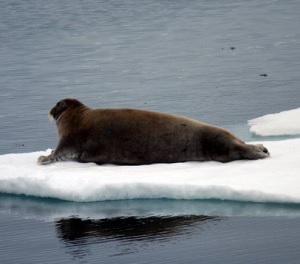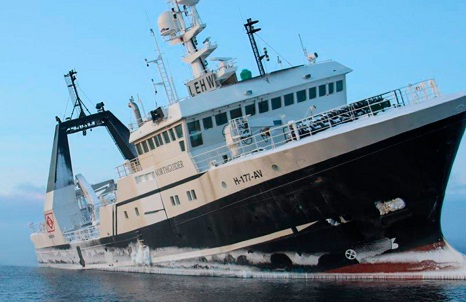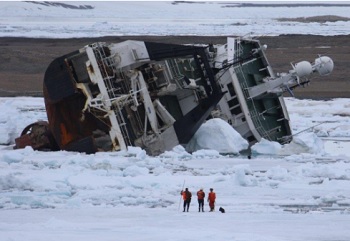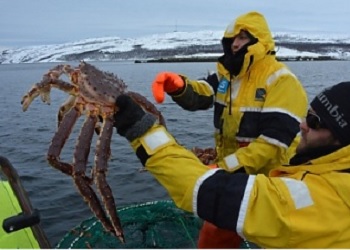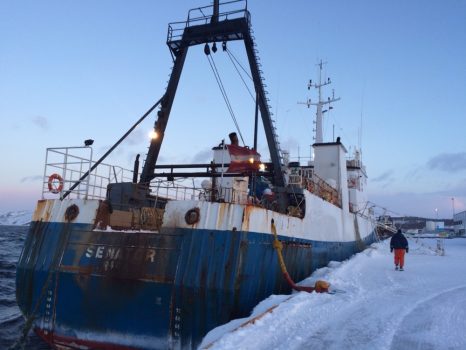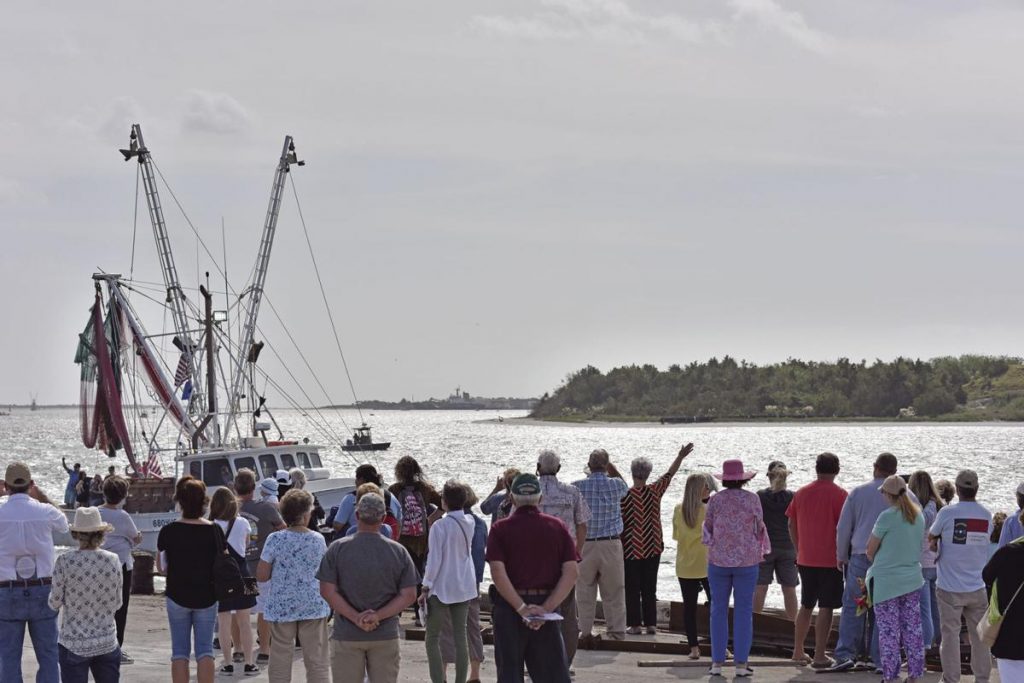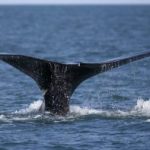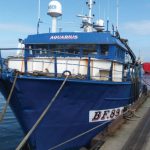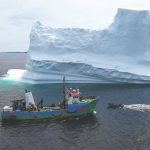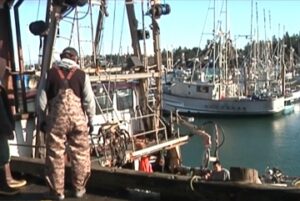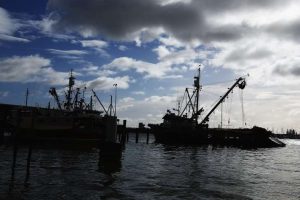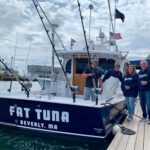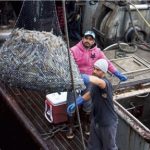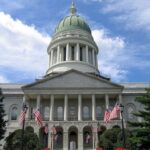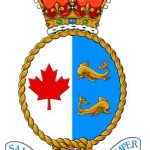Tag Archives: Norway
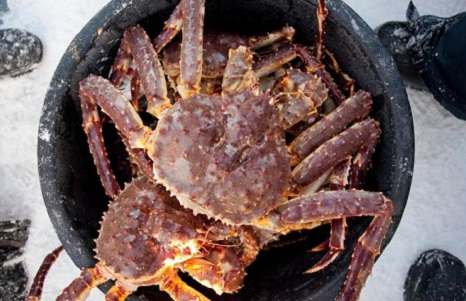
Crab-22: how Norway’s fisheries got rich on an invasive species
The Norwegian fishing village of Bugøynes, 310 miles north of the Arctic Circle and a frigid, dark place for much of the year, was on the edge of ruin. Work was scarce. Years of overfishing and mismanagement had stymied cod quotas. Boats lay idle in cold waters. Those who chose to stay were forced to rely on what meagre wages they could still muster from fishing and processing. That is, until the crabs arrived.,, Unknown to the fishermen, the crustaceans had traveled from Russia, where scientists had introduced red king crabs on the Murman coast during the 1960s with the goal of establishing a new, lucrative fishery. Slowly, the crabs scuttled the 60 or so miles over the border,,, >click to read< 07:39
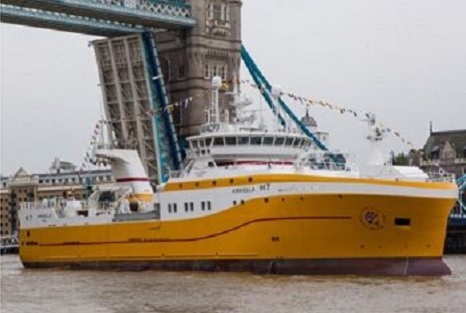
No legal basis for the UK’s distant-waters vessels to fish cod in Norwegian waters from the end of this year
Britains latest state-of-the-art trawler, the £52 million Kirkella, has been laid up in Hull as the Government failed to negotiate new fishing quotas with Norway in time for Brexit Day on 1 January. Instead of ‘taking back control’ with the revival of the UK’s fishing industry, trawlermen in Hull face losing their jobs and the country faces the demise of the distant-waters fishing industry. >click to read< 11:05

Evermore competition
“We always overestimate the change that will occur in the next two years and underestimate the change that will occur in the next ten.” Microsoft founder Bill Gates. Salmon farming is now well into that next 10, and if you’re an Alaska commercial fishermen or resident of an Alaska community still dependent on commercial fishing, you ought to be worried. Why? Because stories like this have become an almost weekly occurrence: “Norwegian company secures financing for industrial-scale salmon farm in rural Nevada.”, or in (Belfast, Me, Humboldt County, Ca., Maryland’s Eastern Shore,,, >click to read< 14:25
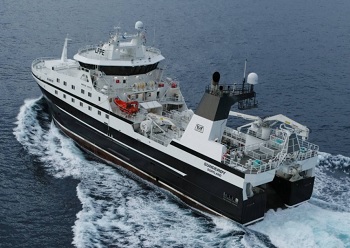
Gondan Delivers Stern Trawler to Prestfjord
Spanish shipbuilder Gondan said it delivered the factory freezing stern trawler Sunderøy. It is one of the most advanced vessels of its kind, which will be operated by Prestfjord AS, one of Norway’s largest fishing and fish farm owners. Built in steel with aluminum superstructure, the stern trawler will operate in Arctic areas, in the Barents Sea and Svalbard waters. >click to read< 15:24
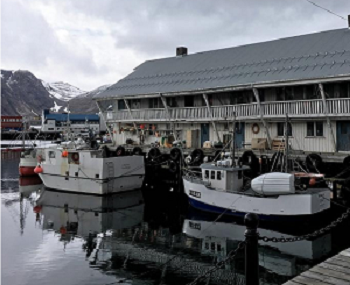
Northern Fishermen in Norway Want to Go It Alone
Last week, the Norwegian Fishermen’s Association, Division North (NFA North) decided to exit from the Norwegian Fishermen’s Association. The proposal to leave was approved with only one vote against.,, members and local chapters are dissatisfied with the fact that issues they raise are not sufficiently followed up on a national level within the NFA. What kind of issues? According to Hansen, one of the problems is that larger and modern coastal vessels have built up so that they can fish efficiently out in the open seas and also fish in areas near the coast, areas with fish on which the traditional coast-based fleet depends. >click to read< 20:00
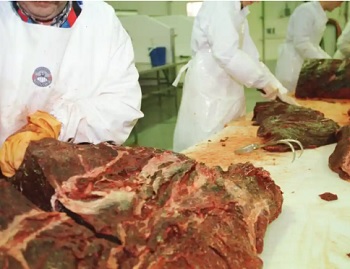
Demand for whale meat in Norway rising after years of decline
Norway remains one of only three countries to publicly allow commercial whaling, along with Japan and Iceland. Much of the catch is sent to Japan, where demand is high, but for the first time in years businesses have reported increased interest in eating whale meat domestically. Four hundred and eighty-four minke whales have been killed so far this year, which is fewer than half the annual quota of 1,278. Last year’s total of 429 whales caught was the lowest in decades. The fleet has also been in decline, with only 12 vessels participating in this year’s hunt, down from 34 in 2004. Odd Emil Ingebrigtsen, Norway’s fishing minister, said: “It is very positive that we are witnessing an increase in both catches and demand for products this year. >click to read< 14:04
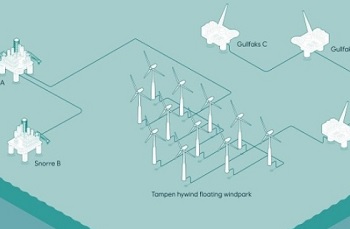
Floating Offshore Wind Farm to Power Offshore Oil Platforms Gains Approval
Norway’s Ministry of Petroleum and Industry has approved the plans for development and operation of the Hywind Tampen wind farm which will mean the Snorre and Gullfaks platforms will be the first platforms in the world to receive power from a floating offshore wind farm. The wind farm will consist of 11 wind turbines based on the Hywind wind farm concept developed by Equinor. The 8MW turbines will have a total capacity of 88MW and meet about 35 percent of the annual power demand of the five platforms Snorre A and B and Gullfaks A, B and C. The wind farm will be located around 140 kilometers from shore, between the Snorre and Gullfaks platforms, at a water depth of 260 to 300 meters. >click to read< 10:45
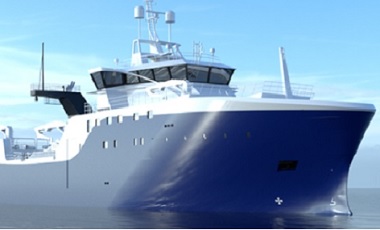
VARD Secures Contract For Stern Trawler
The new vessel will be the first new building of VARD’s own design sold to the Faroe Islands. VARD’s shipyards in Norway have in the past built many fishing vessels to Faroese ship owners, which several of the vessels were highly innovative at the time and a leap forward for the local fishing industry. The newly developed trawler of VARD 8 03 design is based on a range of highly advanced and well-proven fishing vessels from VARD, designed with the latest demands for fish health management, efficiency and environmentally-friendly operations. The vessel has been developed in close cooperation with Framherji and will have the latest green technology on board. >click to read< 14:47
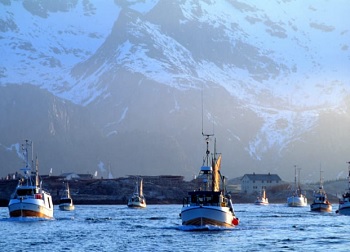
Norwegian industry vows to keep seafood nation running amid Coronavirus chaos
Both wild fisheries and aquaculture are as food producers considered of critical importance to society. Together with the transport sector the seafood producers are aiming to keep up supply of Norwegian seafood both in Norway and abroad. On Saturday 14th March, the Norwegian Ministry of Trade, Industry and Fisheries issued a formal letter identifying the value chain supporting food production and delivery as critical functions to society. In these difficult times it is important to keep society going, and ensure that everyone has access to healthy and nutritious foods, says Odd Emil Ingebrigtsen, newly appointed Minister of Fisheries and Seafood in Norway. >click to read< 19:10
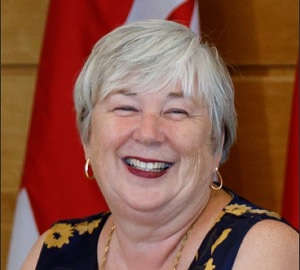
Further protection measures coming to protect North Atlantic right whales
Federal Fisheries Minister Bernadette Jordan says Ottawa will announce further measures in the coming weeks to protect the endangered North Atlantic right whale. Speaking to a fishing gear innovation summit in Halifax today, Jordan didn’t release any details of the coming measures.,, The minister says testing also continues on new technology such as ropeless gear, which could help reduce the risk of entanglements for whales. More than 250 harvesters and fishing gear manufacturers from Canada, the United States, Iceland and Norway are attending the two-day summit. >click to read< 12:50
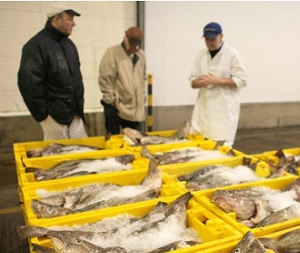
British fishing industry left unhappy by ‘difficult’ 50% cut to North Sea cod quota
Fishers say cod is moving northward due to warming waters, but the EU hasn’t taken this into account. The British fishing industry has criticised an agreement between Norway and the EU that will see the North Sea cod quota in 2020 cut by a half.,, “We think it’s warming waters and climate change. The general feeling on the ground is the cod is going north. What you’re seeing is an abundance of hake. “We’re switching to hake to make ends meet, but we can’t take too much because traditionally the fish has been around France and Spain, so they have the quota. >click to read< 18:26
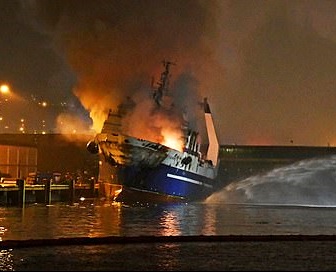
Blaze rages on Russian trawler in northern Norway
A Russian trawler with around 200,000 litres of diesel oil inside and an ammonia tank is in flames at a northern Norwegian port. Authorities have evacuated the surrounding areas because of an risk of the vessel exploding.,, Photos and video footage from the scene showed the vessel had listed drastically by Thursday mid-morning and was covered with thick smoke >Video, click to read< 10:41
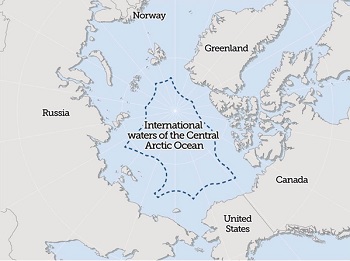
U.S. ratifies The Agreement to Prevent Unregulated High Seas Fisheries in the Central Arctic Ocean
The United States has become the fourth jurisdiction after Canada, the European Union and Russia to ratify a landmark international agreement that aims to prevent unregulated commercial fishery in the high seas of the Central Arctic Ocean, officials at the State Department announced Tuesday. The Agreement to Prevent Unregulated High Seas Fisheries in the Central Arctic Ocean, which was signed in Ilulissat, Greenland last October, includes the so-called Arctic Five – Canada, Norway, Russia, Denmark (Greenland and the Faroe Islands), the U.S. – as well as the major fishing nations – Iceland, Japan, South Korea, China and the EU. >click to read< 17:56
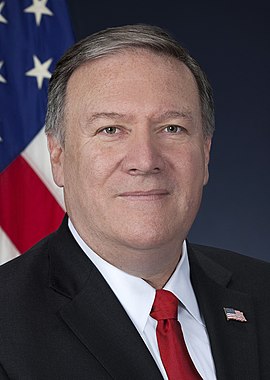
Pompeo calls out Canada, China, Russia over Arctic policy. China entitled to ‘exactly nothing.’
U.S. Secretary of State Mike Pompeo stunned onlookers Monday by taking swipes at Canada, China and Russia in a speech to delegates attending the Arctic Council ministerial. Pompeo, along with foreign ministers from the seven other Arctic nations — Canada, Denmark, Finland, Iceland, Norway, Sweden and Russia — is in Rovaniemi, Finland this week for the eleventh Arctic Council ministerial meeting. Pompeo used his speech to call out countries he accused of making illegitimate claims to Arctic territory, citing Canada’s claim to the Northwest Passage as internal waters. The U.S. considers the Northwest Passage to be international waters. >click to read<09:57
US climate objections sink Arctic Council accord in Finland – click to read<10:39
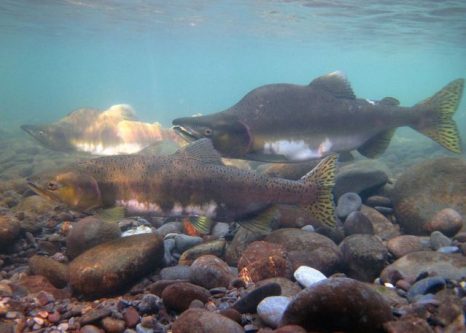
Humpy invasion
While West Coast Americans – Alaskans among them – worry and fret about farmed Atlantic salmon escaping to invade the Pacific Ocean despite decades of failed stocking efforts aimed at helping them do so, the Norwegians, Scots and other Europeans are facing a real and significant problem with an invasive Pacific salmon – the ubiquitous Alaska humpy. The smallest of the Pacific salmon, the humpy – or pink salmon – is by far the most common species in the 49th state. Of the 224.6 million salmon caught in Alaska last year, 63 percent, some 114.6 million, were pinks, according to the Alaska Department of Fish and Game. And Northern Europeans are now worried the highly adaptable and voracious humpy could become a common species in their coastal waters. Blame the Russians. >click to read<15:52
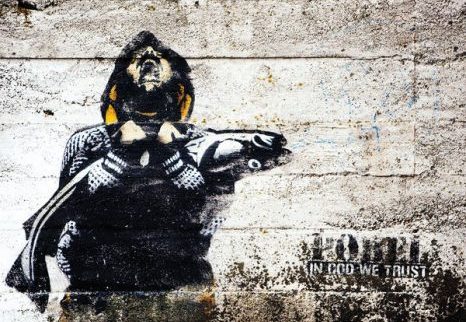
The Shipwrecked Sailors & the Wandering Cod
In the remote archipelago of Lofoten, Arctic cod have been dried on oceanfront racks since the age of the Vikings. This is the unlikely story of how the humble fish became king of Norway. “I could tell you the story of the shipwreck,” says Steinar Larsen, smoothing his hands over the belly of a blue-striped sailor shirt. “But,” demurs the brusque proprietor of the Lofoten Stockfish Museum in the village of Å (pronounced OH-ah) “it would take too long.” (Big Read!) click here to read the story 13:30 
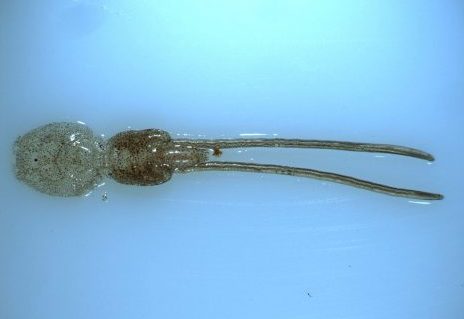
Parasitic sea lice plagues global farmed salmon industry
A surge of parasitic sea lice is disrupting salmon farms around the world. The tiny lice attach themselves to salmon and feed on them, killing or rendering them unsuitable for dinner tables. The lice are actually tiny crustaceans that have infested salmon farms in the U.S., Canada, Scotland, Norway and Chile, major suppliers of the high-protein, heart-healthy fish. Scientists and fish farmers are working on new ways to control the pests, which Fish Farmer Magazine stated last year costs the global aquaculture industry about $1 billion annually. click here to read the story 20:26
Shrimp fishermen facing catch crisis
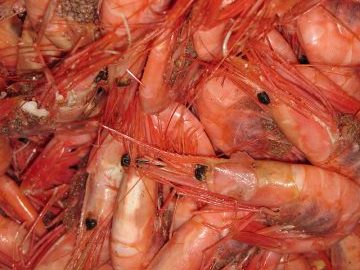 Shrimp fishermen in parts of northern Norway are reporting their worst winter ever, with catches down by between 50 and 75 per cent. Some say that if the situation continues they may be forced to sell their vessels and turn to something new. It is not just Norway which has problems. Some areas on the north east coast of Canada are also reporting a sharp decline in shrimp stocks. One prawn fisherman Lynne Prudence Sjåvik , based in Helgeand region, told the northern office of the state broadcaster NRK that for every year that passes the situation just seems to he get worse. Read the rest of the story here 11:25
Shrimp fishermen in parts of northern Norway are reporting their worst winter ever, with catches down by between 50 and 75 per cent. Some say that if the situation continues they may be forced to sell their vessels and turn to something new. It is not just Norway which has problems. Some areas on the north east coast of Canada are also reporting a sharp decline in shrimp stocks. One prawn fisherman Lynne Prudence Sjåvik , based in Helgeand region, told the northern office of the state broadcaster NRK that for every year that passes the situation just seems to he get worse. Read the rest of the story here 11:25
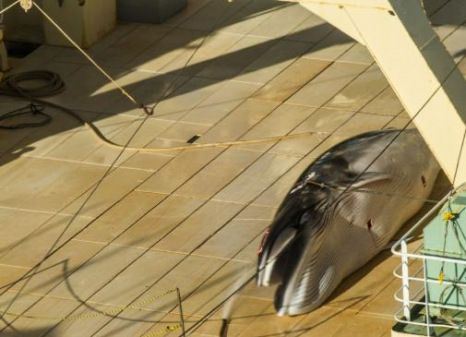
Australian Government ‘disappointed’ as minke whale slaughtered in our waters – Why the Hunt Goes On
The Federal Government has this morning condemned Japan after one of its ships was caught whaling in the waters off Antarctica. Anti-whaling group Sea Shepherd released photos showing a dead minke whale on the deck of the Nisshin Maru ship in the Australian whaling sanctuary. It appears the death was playing out at the same time as Japanese Prime Minister Shinzo Abe’s weekend meeting with Malcolm Turnbull in Sydney, at which the ABC reports whaling was ‘mentioned’, but focused on trade and defence. Japan is a signatory to the International Whaling Commission’s moratorium on whaling in force since 1986. But it exploits a loophole allowing whales to be killed for the purposes of “scientific research”. Read the story here What are the issues behind Japan’s whaling programme, and why has compromise been so difficult? Isn’t whaling banned? Not quite. The International Whaling Commission (IWC), which regulates the industry, agreed to a moratorium on commercial whaling from the 1985. But it did allow exceptions, enough for Japan to hunt more than 20,000 whales since. Read the story here 11:28
‘Atlantic’ follows the fortunes of three small fishing communities – in Ireland, Norway and Newfoundland
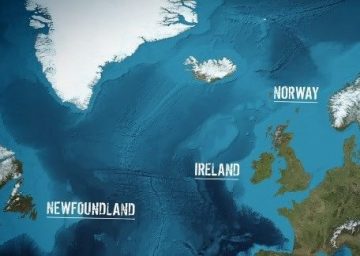 Narrated by Emmy award winner Brendan Gleeson, ‘Atlantic’ follows the fortunes of three small fishing communities – in Ireland, Norway and Newfoundland as they struggle to maintain their way of life in the face of mounting economic and ecological challenges. As the oil majors drive deeper into their fragile seas, and the world’s largest fishing companies push fish stocks to the brink, coastal communities and the resources they rely on are fast approaching a point of no return. This has huge implications for Irish fishing communities and the national exchequer and is even more relevant with news of Brexit and the UK leaving the Common Fisheries Area and with Providence Resources planning a large Irish drilling program in 2017. Filmed in some of the most remote and breathtaking locations in the North Atlantic, and at close quarters with some of the sea’s most captivating characters, Atlantic brings to the fore three very intimate stories from the global resource debate. It explores how modern day communities must learn from the past, in order to secure a brighter future. Watch the trailer, read the rest here 15:29
Narrated by Emmy award winner Brendan Gleeson, ‘Atlantic’ follows the fortunes of three small fishing communities – in Ireland, Norway and Newfoundland as they struggle to maintain their way of life in the face of mounting economic and ecological challenges. As the oil majors drive deeper into their fragile seas, and the world’s largest fishing companies push fish stocks to the brink, coastal communities and the resources they rely on are fast approaching a point of no return. This has huge implications for Irish fishing communities and the national exchequer and is even more relevant with news of Brexit and the UK leaving the Common Fisheries Area and with Providence Resources planning a large Irish drilling program in 2017. Filmed in some of the most remote and breathtaking locations in the North Atlantic, and at close quarters with some of the sea’s most captivating characters, Atlantic brings to the fore three very intimate stories from the global resource debate. It explores how modern day communities must learn from the past, in order to secure a brighter future. Watch the trailer, read the rest here 15:29
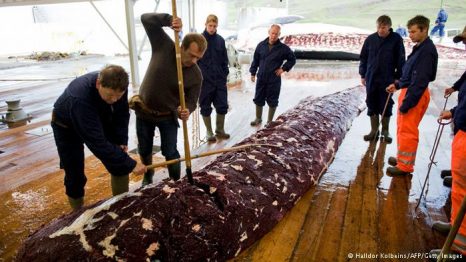
Controversial whale sanctuary to be voted on at the International Whaling Commission
A whale sanctuary in the South Atlantic covering an area as big as India and Russia together: This is the proposal presented by Argentina, Gabon, South Africa, Uruguay and Brazil at the 65th meeting of the International Whaling Commission in Slovenia, which runs from October 20 to 28. A heated debate between some 80 pro- and anti-whaling nations will lead tomorrow (25.10.2016) into voting on whether to give the green light to the proposal, or reject it once again – it happened in 1998. Japan, Iceland and Norway have been the three main countries blocking the sanctuary due – environmentalists say – to their commercial interests. These three nations have used legal loopholes and controversial arguments to keep hunting whales, even in existing sanctuaries. If the new sanctuary proposal is accepted, the immediate question following the hurrahs will be how to really protect whales there from countries that continue to insist on whaling. While the moratorium for commercial hunting from 1985 largely improved the protection of whales, threats such as by-catch or pollution were left out of the agreement. Whale sanctuaries are intended to fill that gap. Read the story here 13:12
Open-net pen salmon farms ending in Norway?
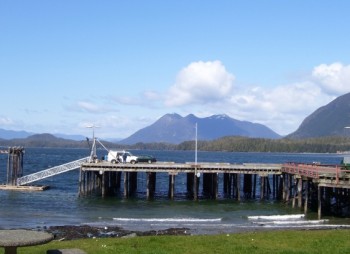 Norway’s salmon-farming industry is hitting a wall. Because salmon farming began earlier there than in B.C., I wanted to get a glimpse of where we might be headed if our industry continues on its current path. This is the reason I organized the Wild Salmon Delegation to Norway, which spent two weeks there this month. What we found is an industry beset by problems such as disease outbreaks, sea-lice infestations and farmed-salmon escapes. The situation in Norway is dire — one headline we saw read: “Five years left to save wild salmon.” Read the rest here 15:58
Norway’s salmon-farming industry is hitting a wall. Because salmon farming began earlier there than in B.C., I wanted to get a glimpse of where we might be headed if our industry continues on its current path. This is the reason I organized the Wild Salmon Delegation to Norway, which spent two weeks there this month. What we found is an industry beset by problems such as disease outbreaks, sea-lice infestations and farmed-salmon escapes. The situation in Norway is dire — one headline we saw read: “Five years left to save wild salmon.” Read the rest here 15:58
Non-EU Europe Fishing Fleets: Europe’s Profitable ‘Outsiders’
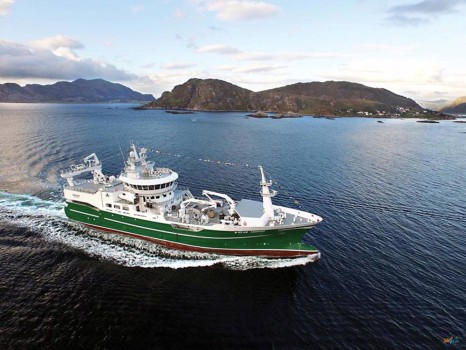 With three species of migrating cod to fish and new commercial species arriving as oceans warm, Norway is a fisheries Valhalla. Yet, recent boat sales suggest the Scandinavian country’s role is changing. Vessel orders and rules in Norway are propping up yards and designers on Europe’s fringes. Medium-sized hull orders for Romanian, Russian and Turkish boat builders are new, while large vessel orders for Denmark or Spain continue apace. Unconventional Icelandic designs, too, are gaining ground here as catches and profits soar. Read the article here 12:04
With three species of migrating cod to fish and new commercial species arriving as oceans warm, Norway is a fisheries Valhalla. Yet, recent boat sales suggest the Scandinavian country’s role is changing. Vessel orders and rules in Norway are propping up yards and designers on Europe’s fringes. Medium-sized hull orders for Romanian, Russian and Turkish boat builders are new, while large vessel orders for Denmark or Spain continue apace. Unconventional Icelandic designs, too, are gaining ground here as catches and profits soar. Read the article here 12:04
Why do some countries still hunt whale’s?
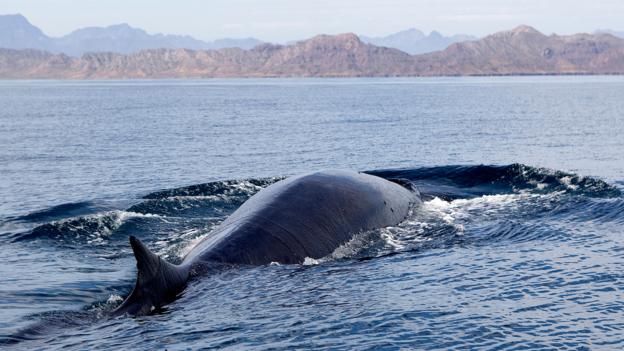 The “hacktivist” group Anonymous recently took down many Icelandic government websites, in protest at the country’s practice of . “Whales do not have a voice. We will be a voice for them. It’s time to speak out about this impending extinction of a species,,, Iceland is not the only country that still practices whaling: Norway and Japan also do so, as do a few smaller populations. This often baffles and horrifies people from elsewhere. If so many people are opposed to it, why are countries still whaling? (because they’re sustainable?) Read the article here 08:39
The “hacktivist” group Anonymous recently took down many Icelandic government websites, in protest at the country’s practice of . “Whales do not have a voice. We will be a voice for them. It’s time to speak out about this impending extinction of a species,,, Iceland is not the only country that still practices whaling: Norway and Japan also do so, as do a few smaller populations. This often baffles and horrifies people from elsewhere. If so many people are opposed to it, why are countries still whaling? (because they’re sustainable?) Read the article here 08:39
U.S. Coast Guard Unveils a New Model for Cooperation Atop the World
 The United States Coast Guard announced Friday the creation of a new international forum for cooperation in the Arctic. Signed at the United States Coast Guard Academy in New London, Connecticut, the new Arctic Coast Guard Forum will include coast guards or similar agencies from Canada, Denmark, Finland, Iceland, Norway, Sweden, Russia and the United States. “Today’s historic Arctic Coast Guard Forum represents a critical step forward in our collective efforts to promote safety, security and environmentally responsible maritime activity in the Arctic,” said Coast Guard Commandant Admiral Paul Zukunft. Read the rest here 10:50
The United States Coast Guard announced Friday the creation of a new international forum for cooperation in the Arctic. Signed at the United States Coast Guard Academy in New London, Connecticut, the new Arctic Coast Guard Forum will include coast guards or similar agencies from Canada, Denmark, Finland, Iceland, Norway, Sweden, Russia and the United States. “Today’s historic Arctic Coast Guard Forum represents a critical step forward in our collective efforts to promote safety, security and environmentally responsible maritime activity in the Arctic,” said Coast Guard Commandant Admiral Paul Zukunft. Read the rest here 10:50






